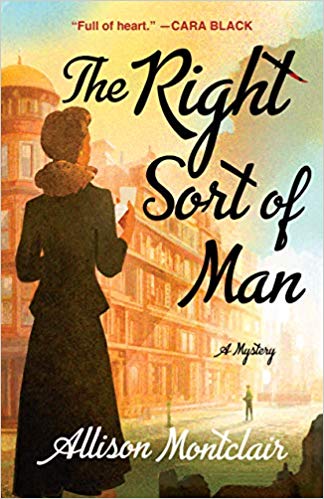 The Right Sort of Man by Allison Montclair
The Right Sort of Man by Allison Montclair Format: eARC
Source: supplied by publisher via Edelweiss
Formats available: hardcover, ebook, audiobook
Genres: historical fiction, historical mystery
Series: Sparks & Bainbridge #1
Pages: 336
Published by Minotaur Books on June 4, 2019
Purchasing Info: Author's Website, Publisher's Website, Amazon, Barnes & Noble, Kobo, Bookshop.org
Goodreads
"A delightful immersion in the period and personalities, with that touch of depth that transforms a good series to a great one." --Laurie R. King
First comes love, then comes murder.
In a London slowly recovering from World War II, two very different women join forces to launch a business venture in the heart of Mayfair--The Right Sort Marriage Bureau. Miss Iris Sparks, quick-witted and impulsive, and Mrs. Gwendolyn Bainbridge, practical and widowed with a young son, are determined to achieve some independence and do some good in a rapidly changing world.But the promising start to their marriage bureau is threatened when their newest client, Tillie La Salle, is found murdered and the man arrested for the crime is the prospective husband they matched her with. While the police are convinced they have their man, Miss Sparks and Mrs. Bainbridge are not. To clear his name--and to rescue their fledging operation's reputation--Sparks and Bainbridge decide to investigate on their own, using the skills and contacts they've each acquired through life and their individual adventures during the recent war.
Little do they know that this will put their very lives at risk.
My Review:
It’s ironic that the protagonists in The Right Sort of Man are absolutely not looking for the right sort, or even the wrong sort of man for themselves. Iris Sparks and Gwen Bainbridge operate a marriage bureau, and they are in the barely profitable business of finding the right sort of man for other women – as well as the other way around.
And that’s where things hit a snag for our intrepid entrepreneurs. One of their clients has just been murdered – and the one and only suspect that the police are interested in pursuing is the person that the Right Sort Marriage Bureau believed was the right sort for the dead woman.
Obviously, if the police are right, Gwen and Iris were very, very wrong. But they don’t think they are. That’s a conclusion that feels right even at the beginning. It feels like the police have come to the easy solution instead of looking for the correct one – but their case makes very little sense. It ties up all too neatly – but makes no sense whatsoever.
That’s where Gwen and Iris step in. Or perhaps I should say barge in. If Dickie Trower didn’t murder Tillie La Salle, then someone else certainly did. If they can find the real killer, they can save an innocent man from the gallows – and save their fledgling business into the bargain.
So they set out to catch a killer, armed with Gwen’s keen intuition about people, and Iris’ many mysterious skills gathered during her top secret career in one of Britain’s ultra secret war departments.
It’s too bad she can’t tell Gwen what she did – because the hints she drops are beyond frustrating.
Even without knowing exactly what Iris did, it’s clear that Iris is up for this unpaid job they’ve taken on. The surprise to Gwen is that she is every bit as capable in her own way as Iris. They both survived their war deeply damaged – but survive they did.
Now it’s time to live – if they can just get poor Mr. Trower out of jail first.
Escape Rating A: This was a terrific read and a great blend of historical fiction and historical mystery. The war is over, and it’s not, both at the same time. Particularly in Britain, where rationing was still very much in effect. Rationing didn’t end in Britain until 1954! (It ended in the US in 1945 for everything except sugar and that rationing ended in 1947)
So this story is an excellent portrait of two women who become friends and business partners, who begin with a whole lot of necessary secrets between them, but end up as close as sisters. They bond over their amateur detecting, even though Iris isn’t really an amateur at all.
Both women are left scarred and broken in their own ways by their war experience, and their work together, both in the marriage bureau and in their foray into sleuthing, is part of their healing.
The case itself delves into some of the dark places of post-war life. In their hunt for a murderer, they find themselves in the midst of a counterfeiting case – as well as working both with and against one of the gangs involved with the black market.
What makes their relationship so much fun to watch is that they come from completely different backgrounds and have totally different approaches to their circumstances. Gwen is the child of privilege, where Iris’ background seems to have been middle-class at best. Both are escaping from trauma that they have not dealt with properly, although their escapes methods, while being totally different, are equally unhealthy.
This investigation sees them take their first steps into a brighter future. And it’s terrific to watch. I also think that readers of the Maisie Dobbs series are going to love Iris and Gwen.
In the end, neither Iris nor Gwen finds exactly the right sort of man, but this is absolutely, positively the right sort of book if you’re looking for a terrific story of women’s friendship bonded by solving mysteries together!
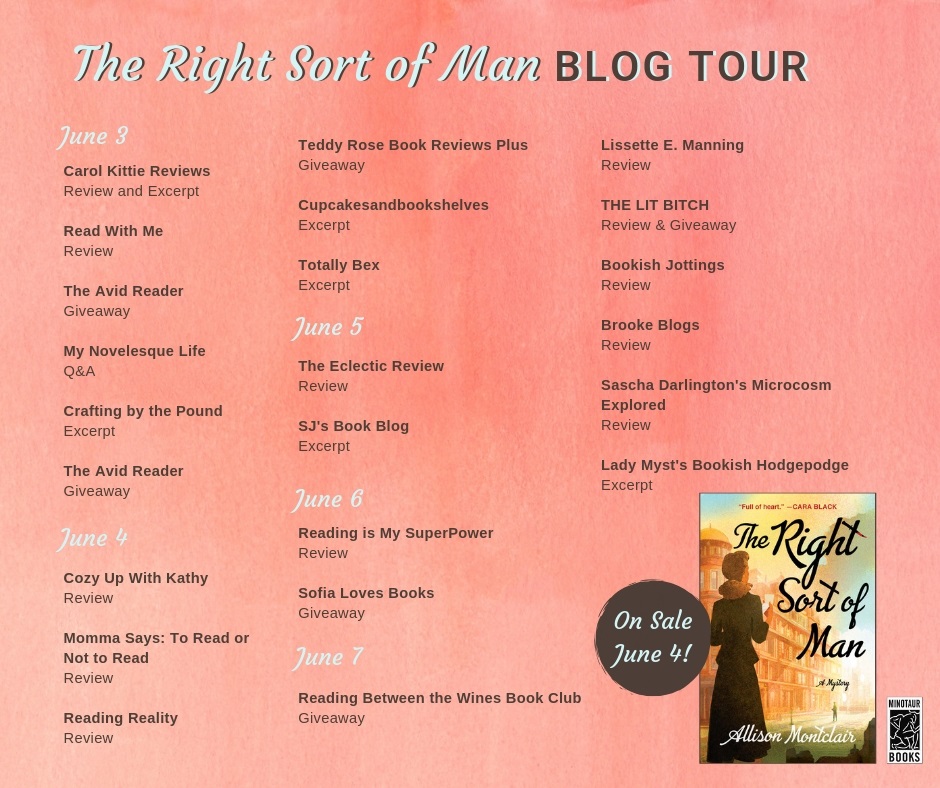

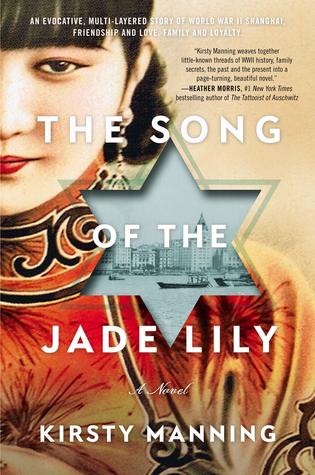 The Song of the Jade Lily by
The Song of the Jade Lily by 
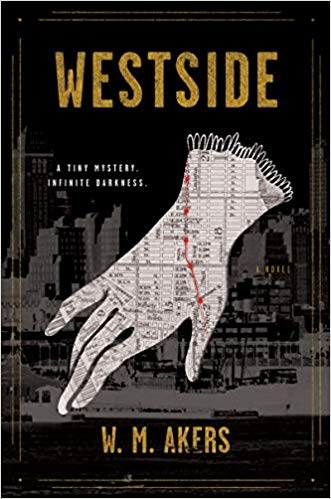 Westside by
Westside by 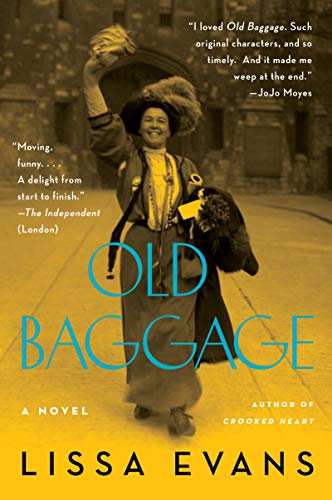 Old Baggage by
Old Baggage by 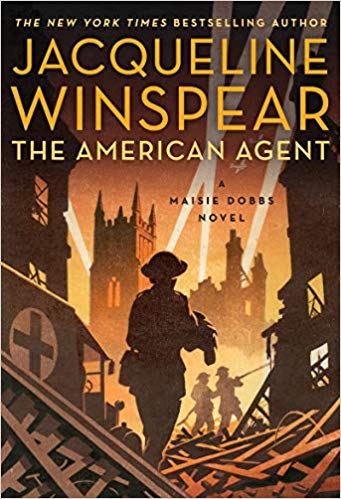 The American Agent (Maisie Dobbs, #15) by
The American Agent (Maisie Dobbs, #15) by 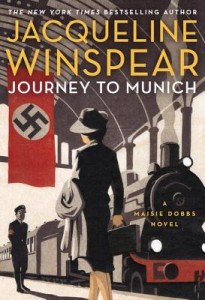 Just as Cath gets in – she’s out. She’s found murdered in her rented rooms, and both Scotland Yard and the American Embassy call on Maisie to find out who killed her. It might just be a love affair gone wrong. It might have something to do with her reporting. There’s also a chance that her powerful family back in America decided that Cath’s sympathetic reports of the plucky and heroic English response to Hitler’s Blitz might be too embarrassing for their Hitler-sympathizing friends back home.
Just as Cath gets in – she’s out. She’s found murdered in her rented rooms, and both Scotland Yard and the American Embassy call on Maisie to find out who killed her. It might just be a love affair gone wrong. It might have something to do with her reporting. There’s also a chance that her powerful family back in America decided that Cath’s sympathetic reports of the plucky and heroic English response to Hitler’s Blitz might be too embarrassing for their Hitler-sympathizing friends back home.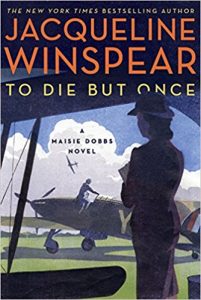 However, there are plenty of people who have taken that belief that war is terrible, but either believe that Hitler is unstoppable or don’t care who dies as long as their profits continue. And some who agree with his many and terrible hatreds and prejudices. (If that sounds familiar, it bloody well should as things stand today!)
However, there are plenty of people who have taken that belief that war is terrible, but either believe that Hitler is unstoppable or don’t care who dies as long as their profits continue. And some who agree with his many and terrible hatreds and prejudices. (If that sounds familiar, it bloody well should as things stand today!)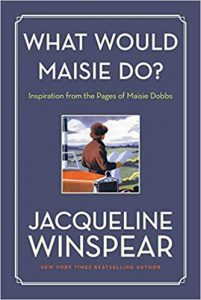 But Maisie never presumes, never presupposed and never lets herself get dead set on any hypothesis. She follows the clues where they lead her. No matter how much she has to dig, and how many secrets she uncovers along the way.
But Maisie never presumes, never presupposed and never lets herself get dead set on any hypothesis. She follows the clues where they lead her. No matter how much she has to dig, and how many secrets she uncovers along the way. The Woman in the Lake by
The Woman in the Lake by 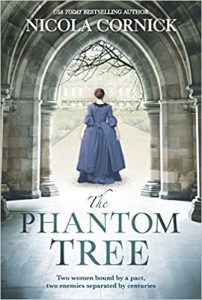 After reading
After reading 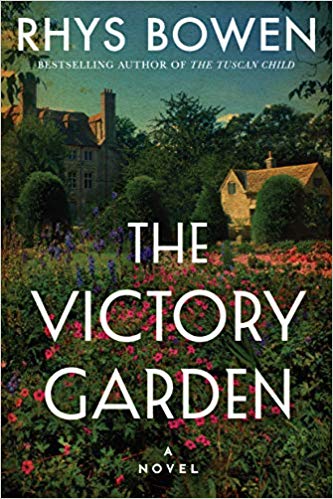 The Victory Garden by
The Victory Garden by 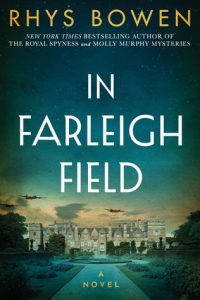 However, just as
However, just as 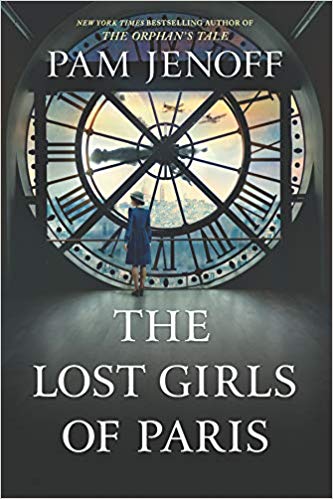 The Lost Girls of Paris by
The Lost Girls of Paris by  Author Info:
Author Info: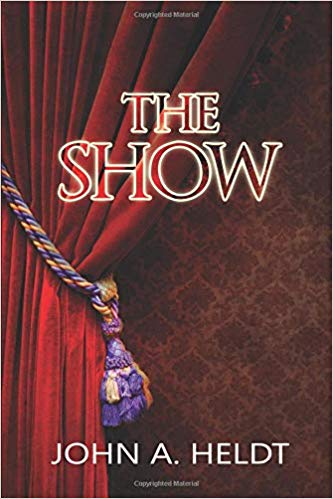 The Show (Northwest Passage #3) by
The Show (Northwest Passage #3) by  While The Show is the third book in the author’s
While The Show is the third book in the author’s  Escape Rating B: I enjoyed The Show, but it doesn’t hold up quite as well as my memory of The Mine – which you really need to read before going to The Show. Nor did it grab at my heartstrings in the way that The Journey did.
Escape Rating B: I enjoyed The Show, but it doesn’t hold up quite as well as my memory of The Mine – which you really need to read before going to The Show. Nor did it grab at my heartstrings in the way that The Journey did.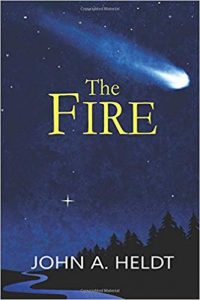 One final thought about that butterfly flapping its wings. Joel worried about changing the past and thereby changing his future. Grace, on the other hand, when the opportunity arises, rushes to change the past in a way that should prevent the future that gave birth to herself. It’s the ultimate paradox of time travel, and it bothers me that it isn’t addressed in any way.
One final thought about that butterfly flapping its wings. Joel worried about changing the past and thereby changing his future. Grace, on the other hand, when the opportunity arises, rushes to change the past in a way that should prevent the future that gave birth to herself. It’s the ultimate paradox of time travel, and it bothers me that it isn’t addressed in any way.